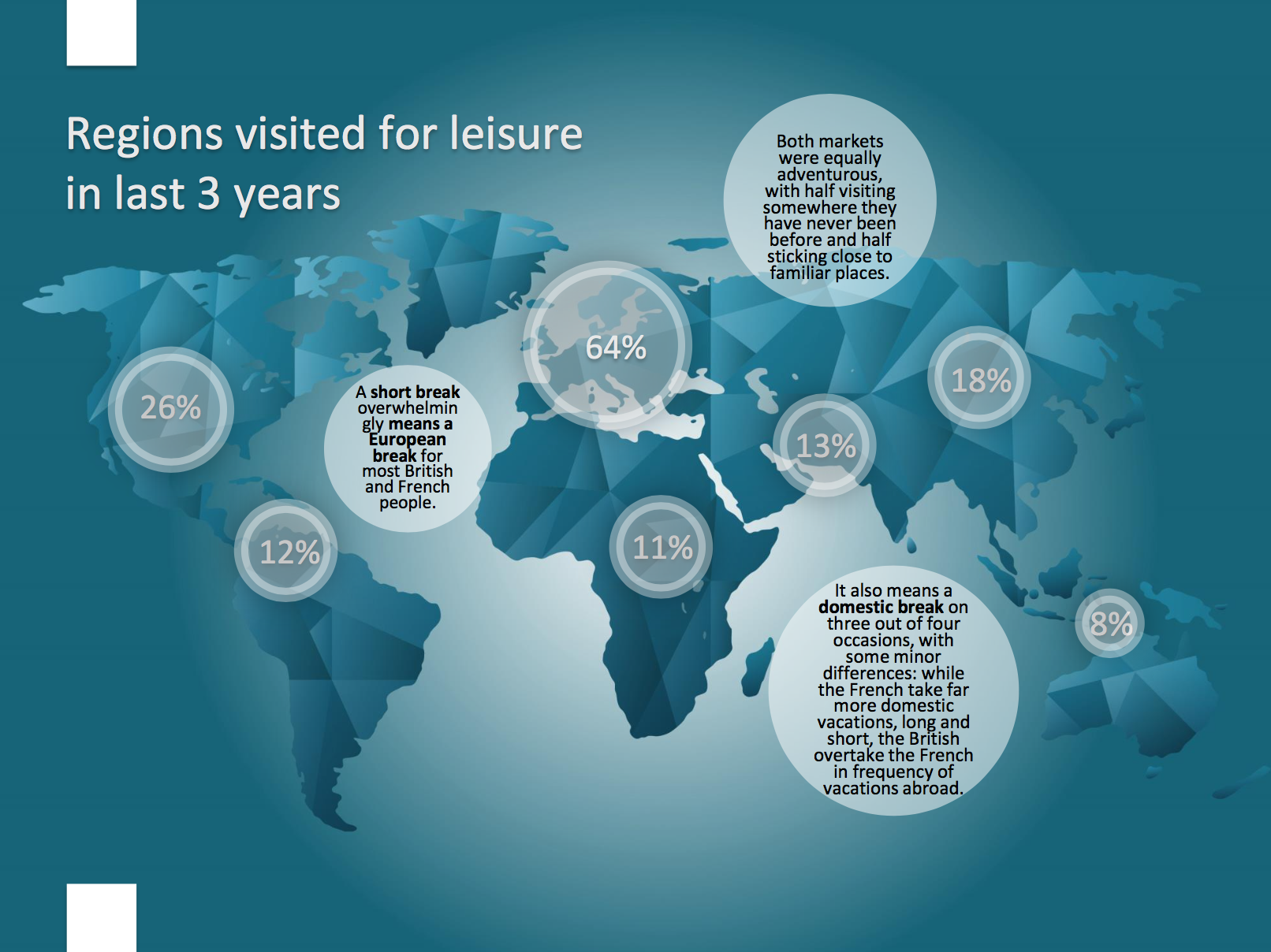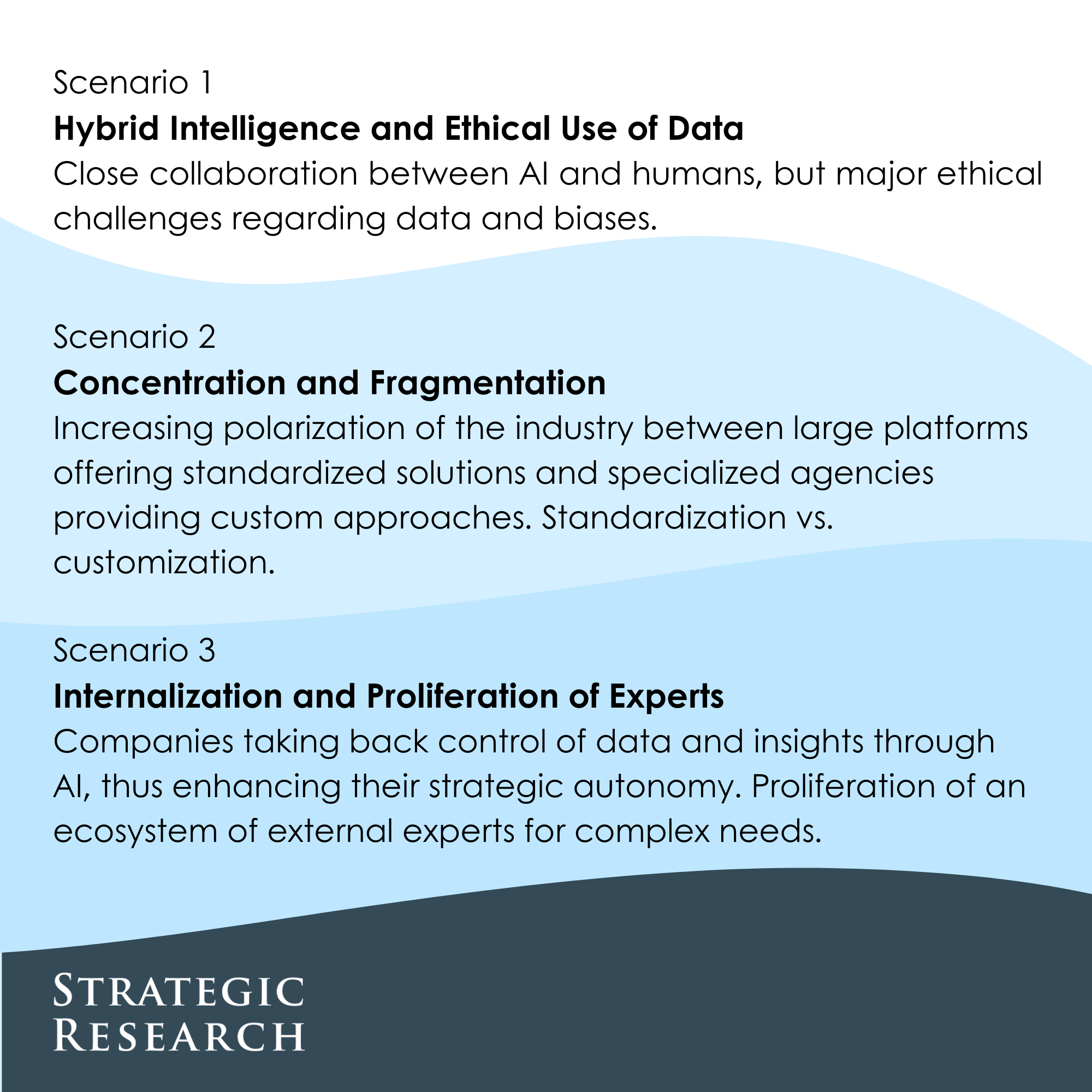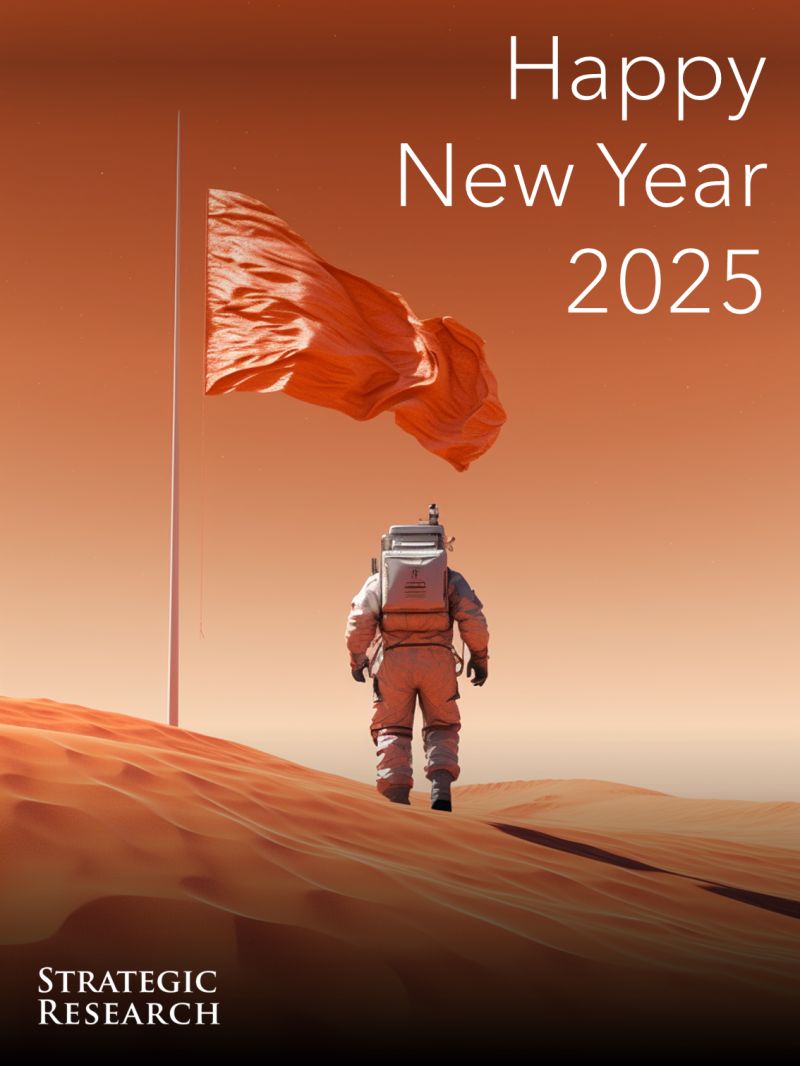Our research exploring short breaks was carried out in the UK and France.
While some market features were common to both countries, key differences emerged in terms of accommodation choices, motivations – and even who goes on a trip.

For the British,
city breaks are the ultimate destination, ahead of the beach and other nature getaways.
The French,
by contrast, frequent the beach above all else with countryside slightly beating city breaks. Even though mountain vacations came in last, the French still go there far more frequently than the British.
Party mix also varies by country. Whereas in the UK, travel as a couple is on par with travel as a family with kids, the French are more likely to take couple getaways than family trips. Interestingly the French are more likely to travel with grandchildren and extended family than the British.
Most consumers use their car for 2-4 day getaways. As a natural result of geography, the British take a plane more frequently than the French, who are just as likely to take a train to their destination.
Once they have arrived at their destination, the place of the traditional hotel remains at the top of the accommodation chain, especially for the English. The French market has shown itself to be more open to the sharing economy and to movements until recently considered as disruptive. One in seven use the Airbnb platform to book accommodation, with consumers also more likely to rent accommodation or stay in a mobile home.
MORE ON THE SHORT BREAK CUSTOMER JOURNEY
→ A typical short break customer journey in the UK & France
→ Is the travel market consolidating or fragmenting?
→ A segmentation for the short break market
→ Digital transformation of the short break travel market
CONTACT
Ariane Griesbeck
METHODOLOGY
- Target: Men and women, residing in the UK and France, 15-65 years old, taken from national representative samples. Quotas set for gender, age, profession of interviewee, region, household size
- Sample sizes: France: 800 interviewees, UK: 800 interviewees
- Data collection methodology: Online
- Data collection dates: January 10th – 25th, 2017
- Questionnaire length: 21 minutes



